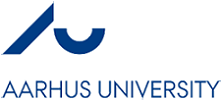Mechanical Engineering

Winter intake start date
2026-02-01
Winter intake deadline
2024-10-10
How do you design the blades of a wind turbine? How do you calculate the lifetime of a computer chip or a fuel cell? How do you analyse the dynamics of a racing car? These are just some of the questions the MSc in Mechanical Engineering programme explores.
The programme provides students with the opportunity to apply theory to practical issues, with scope for interdisciplinary collaboration. You will gain a sound understanding of advanced calculation methodologies, such as the finite element method (FEM) and multidisciplinary simulation tools. You will study topics such as computational fluid dynamics (CFD), structural dynamics and modal analysis, and fracture mechanics and fatigue. The basis for these competencies includes continuum mechanics, elasticity theory and plasticity theory.
Choice in electives and specialisation
The first and the second semester include a number of compulsory courses and elective course packages within the specialisations of Structural Mechanics, Fluid Dynamics, Dynamics, Fracture and Composits and Termo Machinery.
The third semester includes elective courses and the possibility to do a project, which can be completed in collaboration with a company and/or a research group.
As a student on the degree programme, you will be offered half-yearly student development interviews. This is an opportunity to discuss topics such as requests and plans regarding choice of courses, as well as choosing subjects from other departments at Aarhus University
Na studia magisterskie mogą kandydować wszyscy, którzy ukończyli studia licencjackie lub inżynierskie (studia I stopnia), studia magisterskie lub studiują na ostatnim roku studiów I-stopnia. Studia, które planujesz powinny mieć zbliżony profil do tych obecnych lub ukończonych, ponieważ w procesie rekrutacji kluczowa jest ich zgodność programowa.
Wykaz punktów ECTS – osoby, które są jeszcze w trakcie studiów, muszą załączyć wypis punktów ECTS, w którym będzie wykazane, jakie przedmioty były realizowane na studiach oraz ile punktów za nie otrzymano.
Dyplom ukończenia studiów licencjackich lub inżynierskich – jeśli jesteś absolwentem wyższej uczelni, nie potrzebujesz wypisu, wystarczy załączyć dyplom ukończenia studiów wraz z suplementem (w języku angielskim lub oryginał z tłumaczeniem)
Course description - należy przygotować dokument, zbierający cały sylabus ze studiów licencjackich. Takie sylabusy najczęściej są do pobrania na stronie uniwersytetu. Należy je przetłumaczyć na język angielski (można samodzielnie) i złączyć w jeden dokument. Warto też zapytać w dziekanacie uczelni, czy nie dysponują wersją angielską.
Oficjalna skala oceniania Twojej uczelni - możesz dostać taki dokument w dziekanacie Twojej uczelni lub skonstruować samodzielnie. W obu przypadkach dokument powinien zawierać pieczątkę dziekanatu.
Spełnienie wymagań w zakresie języka angielskiego można udokumentować w jeden z następujących sposobów:
IELTS – 6.5
TOEFL – 83 (Aarhus University TOEFL kod - 8935)
Uwaga: wymagania językowe mogą ulec zmianie. Przed wysłaniem aplikacji upewnij się jakie są wymagania językowe na konkretny kierunek bezpośrednio na stronie uczelni.
W przypadku zdawania certyfikatu IELTs upewnij się, czy uczelnia oprócz wymagań oceny końcowej nie ma również wymagań odnośnie ocen cząstkowych.
The following Bachelor's degrees qualify students for admission to the Master of science in Engineering degree programme in Mechanical Engineering if mathematical competencies in extent and content equal to at least 20 ECTS on Bachelor level in Calculus, Ordinary Differential Equations, Systems of Ordinary Differential Equations, Partial Differential Equations, Vector Differential- and Vector Integral Equations can be documented.
A Bachelor Degree with at least 60 ECTS in the field of mechanical engineering can provide admission, provided that the academic requirements for the graduate engineer degree programme are met.
